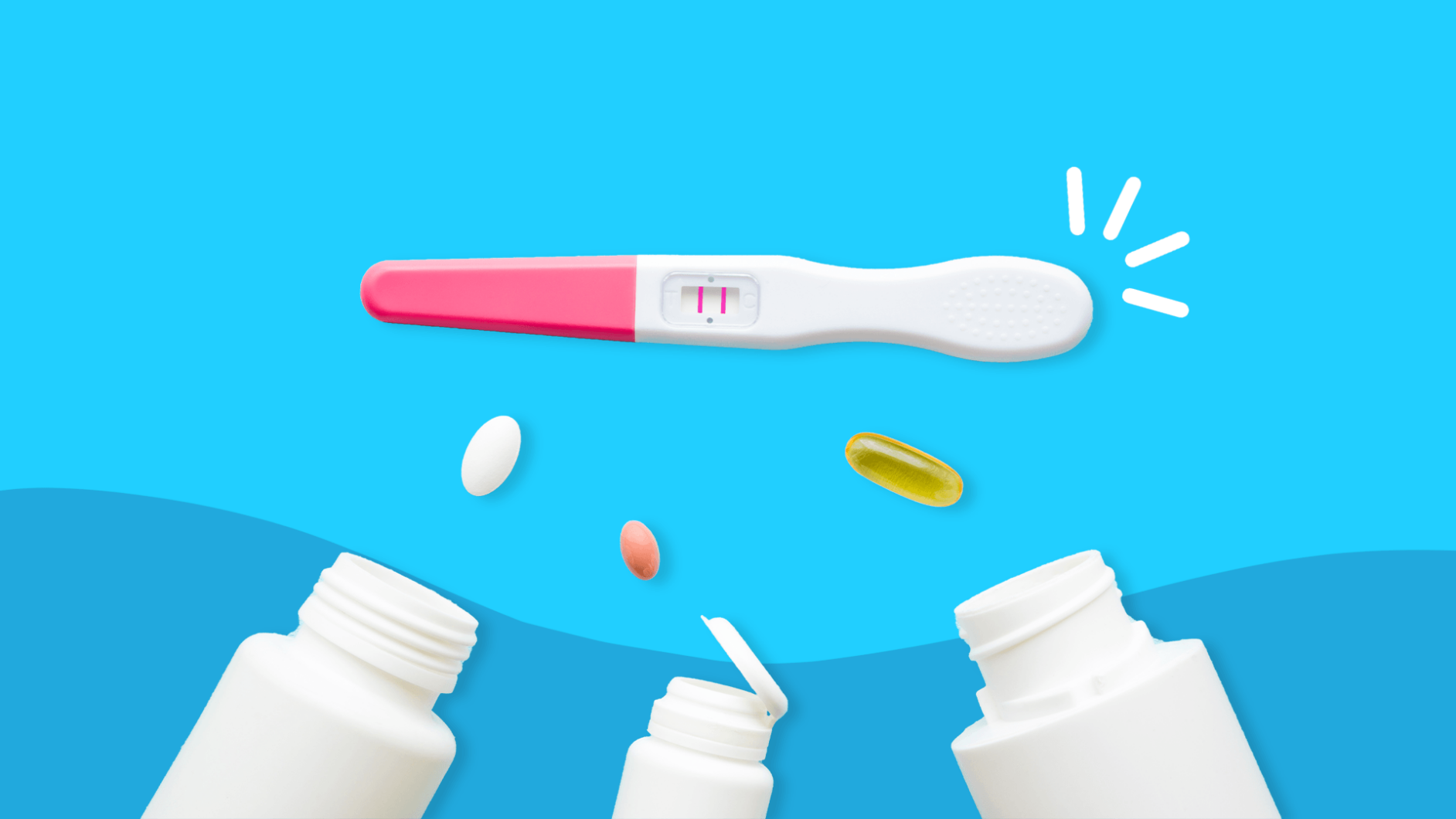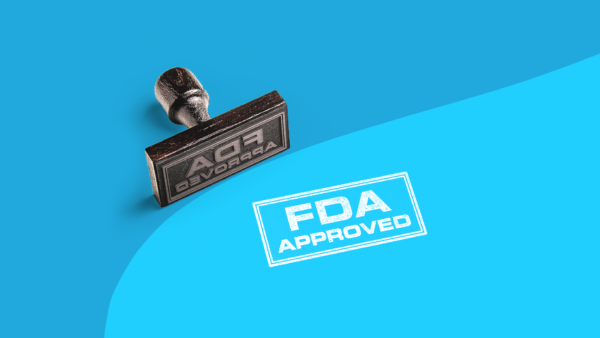Key takeaways
Certain medications may impact a person’s fertility by interfering with ovulation and thickening or reducing cervical mucus.
Medications that may negatively impact fertility include certain NSAIDs, anticonvulsants, antidepressants, high blood pressure medications, some diabetes drugs, steroids, and certain supplements.
Some supplements may help boost fertility, including B vitamins, folic acid, copper, manganese, zinc, selenium, and omega-3 fatty acids.
Some medications (like Accutane) must be stopped for a certain amount of time before trying to get pregnant.
Schedule a preconception medication consultation with your healthcare provider to review your list of medications and supplements.
Deciding to start or expand your family is a life-changing moment, so naturally, many individuals want to do everything they can to prepare. Ensuring a healthy pregnancy starts with looking at your current health and the medicines you take.
Medicines take effect as the body absorbs them. They interact with cells to affect all sorts of body functions—from nerve signaling to hormone synthesis. Some medications are known to affect fertility, whereas more research is needed about others. Understanding the medications you take is a vital part of conception planning, as a well-informed approach to medications may help you avoid barriers to getting pregnant.
Importance of medication management while trying to conceive
Infertility is more common than you may think. In the U.S., as many as 1 in 5 married women aged 15 to 49 years with no prior births are unable to get pregnant after one year of trying, according to the Centers for Disease Control and Prevention (CDC). Age, health, lifestyle, and environment all affect a person’s capability to conceive.
Medications are a modifiable factor that may impact a person’s fertility. Some drugs interfere with ovulation or thicken or reduce cervical mucus, which makes it difficult for sperm to fertilize the egg and for the egg to implant in the uterus.
Learn how your medications work so you can talk with your healthcare provider about alternatives with confidence.
Medications that can harm fertility
Couples trying to conceive should talk with their doctors about the medications they’re taking, as some may impact their odds of getting pregnant.
Non-steroidal anti-inflammatory drugs (NSAIDs)
People take NSAIDs to relieve aches and pains. There are multiple types of NSAIDS, and each can impact fertility.
Some common OTC COX-2 inhibitors that may affect fertility include but are not limited to Aleve (naproxen) and Voltaren (diclofenac). These medications may prevent pregnancy by affecting ovulation, fertilization, and implantation.
Naproxen and meloxicam (prescription only) may also lower sperm count and movement.
Note: Ibuprofen—a common NSAID—is a non-selective COX inhibitor. It acts differently in the body and is unlikely to affect fertility in the same way.
Common prescription medications that may temporarily affect ovulation, resulting in some cases where the ovaries will fail to release an egg, include but are not limited to:
Note: This is not a complete list of prescription NSAIDs that may affect fertility. Check with your healthcare provider before taking prescription NSAIDs while trying to conceive.
Anti-seizure medications
Anti-seizure medicines may also affect your ability to get pregnant. Some of these drugs disrupt reproductive hormone levels, including making some birth control less effective. If you take a prescription for seizures, your healthcare provider can help you figure out if you need a medication change, especially since some of these medications may have significant effects on a fetus. Common medicines in this group include:
- Phenobarbital
- Phenytoin
- Carbamazepine
- Valproic acid
Valproate (an anti-epileptic) has also been shown to cause temporary male infertility.
Antidepressants
Prescription depression medications (antidepressants) interfere with the female reproductive cycle. Studies have found that selective serotonin reuptake inhibitors (SSRIs) lessen a woman with depression’s capability to naturally conceive. They can raise prolactin levels, which blocks ovulation. Common SSRIs include:
SSRIs (antidepressants) may have reversible effects of lower sperm count, reduced sperm motility, and affecting the sperm’s DNA.
Nonetheless, healthcare providers warn against stopping these medications. If you’re taking an antidepressant and want to become pregnant, ask your provider about changing to an alternative. Stopping an SSRI or other antidepressant cold turkey can have negative effects, including:
- Worsening anxiety and depression symptoms
- Nausea
- Headaches
- Insomnia
A healthy mind is just as important as a healthy body when it comes to fertility. Studies show that individuals who take care of their mental health are more likely to conceive than those who don’t take steps to deal with their depression or anxiety.
Anti-hypertensives
High blood pressure medications (anti-hypertensives) also require preconception planning. For example, beta blockers may reduce blood flow to the uterus and affect implantation, making it harder to conceive.
Nonetheless, doctors warn against stopping your anti-hypertensive medication, as you may experience withdrawal symptoms (headache, dizziness, etc.) or rebound hypertension. High blood pressure levels increase your risk for heart disease and stroke.
Calcium channel blockers like Norvasc (amlodipine) and nifedipine may affect the sperm’s capability to fertilize the egg.
If you’re taking a prescription for blood pressure and want to conceive, talk to your healthcare provider about a personalized treatment plan.
Diabetes medication
Diabetic medications are a special concern for women trying to get pregnant. In most cases, they help people with diabetes maintain healthy blood sugar levels and a healthy weight and for some, may improve fertility. However, prescription diabetes medications may cause hypoglycemia (low blood sugar), which affects fertility, and stopping your diabetes medication may cause an unsafe rise in blood sugar. Hyperglycemia (high blood sugar) in women may lead to low sex drive and menstrual disorders and may cause fetal anomalies.
Both Ozempic and Saxenda are popular medications belonging to a drug class called GLP-1 antagonists, which are used to help increase insulin secretion in people with Type 2 diabetes.
“Over the last six months, I have been seeing more people in my fertility practice who are either using this medication and want to know if it is safe for them to take while trying to conceive, or they ask if they can start using this medication to lose weight as part of their infertility management,” says Ginevra Mills, MD, a reproductive endocrinologist with Olive Fertility Center. She suggests that neither of the medications is safe to be used during pregnancy, and both should be stopped prior to trying to conceive. She recommends waiting at least three months after stopping Ozempic and waiting one month after stopping Saxenda. Also, these medications may reduce the effectiveness of some birth control medications, resulting in an unplanned pregnancy.
If you’re diabetic and plan on becoming pregnant, talk to your healthcare provider about your diabetes medications. People with Type 2 diabetes are sometimes able to control their blood sugar through diet and exercise while trying to conceive.
Steroids
Steroids are another class of prescription drugs that affect conception. New evidence shows that corticosteroids like prednisolone may stop a fertilized egg from lodging in the uterus. Interestingly, some fertility doctors use corticosteroids to improve pregnancy outcomes. This mixed evidence means it’s best to discuss any steroids you’re taking with a healthcare provider. It’s shown that prednisone may also lower sperm quality.
Natural supplements
There are countless natural supplements on the market these days, and knowing which are safe to take while trying to conceive is important. Many plant-based supplements act in the same way prescription drugs do. For example, turmeric acts like a COX-2 inhibitor, which could affect ovulation. Also known as curcumin, it reportedly alters fertility by reducing sperm motility.
St. John’s wort can have positive benefits for mental health, but it’s not encouraged to take while trying to conceive. While it isn’t thought to be harmful to pregnancy, research hasn’t proven that it’s completely safe either.
Medications that can boost fertility
Supplements have become wildly popular, with up to 75% of Americans taking one daily, according to the CDC. A quick internet search will turn up capsules, tablets, and teas designed to enhance fertility. Unfortunately, since the FDA has not approved these products to treat infertility, buyer beware.
The FDA regulates dietary supplements as food. In other words, it does not fully evaluate their effects in the same way as medicines. The good news is that when it comes to fertility supplements, many are basically vitamin and mineral blends. In fact, many labels look similar to prenatal vitamins.
Folic acid is an important vitamin that has been shown to increase fertility by as much as three times.
Other micronutrients that may boost fertility include:
- Vitamin B2
- Vitamin B6
- Copper
- Manganese
- Zinc
- Selenium
- Omega-3 fatty acids
When considering a supplement, always check the label. Steer clear of any ingredients you’re unfamiliar with. Also, do your research to learn about what the ingredients are for. Beware that since the FDA does not evaluate vitamins and supplements, many may have impurities, contaminants, or insufficient effective ingredients.
Instead of self-prescribing, consult a healthcare provider or dietitian about supplements. A medical professional can give you the most up-to-date information on how they affect fertility.
Preconception medication consultation
Preconception care can support a healthy pregnancy before a woman conceives. This preventive approach focuses on taking steps now for a healthy baby in the future. Currently, less than half of women receive medical advice preconception, even though growing evidence says pre-pregnancy care leads to a healthier pregnancy.
A preconception medication consultation may improve your outlook if you’re trying to conceive.
Role of the healthcare provider in medication management
During a preconception medication appointment, your healthcare provider will consider your current health, asking you questions and talking about your goal of getting pregnant. They will also review your medicines, vitamins, and supplements to ensure they are safe for pregnancy. A healthcare provider can explain the possible advantages and dangers of pre-pregnancy medications, including any adjustment recommendations.
For instance, a woman with high blood pressure may need to switch or taper her medications before conception since stopping the medication could be dangerous. Women with diabetes who are hoping to conceive must maintain healthy blood glucose and an optimal weight, meaning they may need medication monitoring as well.
Preconception medication management is sometimes tricky. Thankfully, you don’t have to figure it out by yourself. Working with your healthcare provider in a collaborative relationship removes the stress, leaving you free to focus on taking care of your body and preparing for a pregnancy.
Common questions to ask your healthcare provider
When working with your provider to manage medications, you will gain the best outcome by being proactive in the process. One way to actively participate in your medication management is to make a list of your current and past health problems. Also, make a list of medicines, vitamins, and supplements you take or have taken recently.
You should also write down specific questions you have in case your mind goes blank when you’re in the exam room. Take time to jot down what concerns you. Consider these questions as a starting point if you’re unsure where to begin.
- How may my current health and medical conditions affect my fertility?
- Might any of my medications affect my capability to get pregnant?
- Should I make any changes to my medications or dosages while trying to conceive?
- Are there safer alternatives I should consider?
- Are there any vitamins or supplements I should take pre-pregnancy?
- Which OTC, herbal, and supplement products should I avoid?
- What foods, supplements, or other medications may interact with what I am taking now?
- What changes will I need to make when I find out I am pregnant??
When talking to your provider, be open and honest to ensure you receive the best care and advice.
Medication changes before trying to conceive
When you need to make medication changes, talk to your healthcare provider. In many cases, your healthcare provider will be able to recommend alternative treatments. For instance, instead of an NSAID for pain, your healthcare provider may suggest a different medication, like Tylenol (an analgesic), perhaps even a non-pharmacologic option, like cryotherapy or acupuncture.
Some medications, such as Accutane (isotretinoin), must be stopped for a certain amount of time before trying to get pregnant. This is especially important since isotretinoin can cause severe fetal anomalies. Medications like isotretinoin may cause changes in the menstrual cycle of some people. It is also recommended that you wait one month after stopping isotretinoin before trying to get pregnant.
Understanding the risks and benefits
When you’re ready to get pregnant, your provider will help you determine if medication changes are necessary. They will help you weigh the risks versus benefits of changing your medication regimen. Many factors come into play, such as:
- The advantages of making medication changes
- Possible side effects of starting or stopping a medicine
- How medications may affect your fertility or pregnancy
By working through these concerns, you and your provider can make a plan that works for your overall health and goals.
Sources
- Infertility FAQs, Centers for Disease Control and Prevention (2023)
- Cervical mucus, Cleveland Clinic (2021)
- Naproxen, Mother to Baby (2022)
- Non‐steroidal anti‐inflammatory drugs as a possible cause for reversible infertility, Rheumatology, (2000)
- The potential danger of COX 2 Inhibitors, Fertility and Sterility (2003)
- Short term application of ibuprofen before ovulation, Facts, Views & Vision in ObGyn (2020)
- Meloxicam, Mayo Clinic (2024)
- Contraception, fecundity and pregnancy in women with epilepsy: an update on recent literature, Northwestern University Feinberg School of Medicine (2022)
- Reversible male infertility with valproate use, Epilepsy & Behavior Reports (2021)
- The effect of antidepressants on fertility, American Journal of Obstetrics & Gynecology (2016)
- Effect of antidepressant medications on semen, The Japanese Urological Association (2020)
- Antidepressant discontinuation syndrome, Cleveland Clinic (2023)
- Psychological problems related to infertility, Cureus (2022)
- High blood pressure, MedlinePlus (2022)
- The link between hypertension and infertility, Banker IVF and Women’s Hospital (2023)
- Oral hypoglycemic medications, StatPearls Publishing LLC (2023)
- What to know about Ozempic and Pregnancy and Fertility, Olive Fertility (2023)
- Some GLP-1 users report unexpected pregnancies, Washington Post (2024)
- Prednisolone alters endometrial decidual cells, Frontiers in Biology (2021)
- Prednisone improves pregnancy outcome, Journal of Reproductive Immunology (2021)
- FDA-approved medications that impair human spermatogenesis, Oncotarget (2017)
- Turmeric and its major compound curcumin on health, Frontiers in Pharmacology (2020)
- Guaifenesin, Mother to Baby (2023)
- Improvement of cervical factor with guaifenesin, American Fertility Society (1982)
- Dietary supplement use, Centers for Disease Control and Prevention (2021)
- IVF outcomes associated with biomarkers of the homocysteine pathway in monofollicular fluid, Human Reproduction (2009)
- The impact of preconceptional multiple-micronutrient supplementation, Clinical Medicine Insights: Women’s Health (2019)
- Some natural supplements can be dangerously contaminated, PBS (2020)
- Preconception care, American Academy of Family Physicians (2022)











